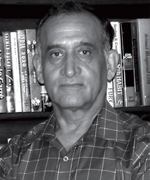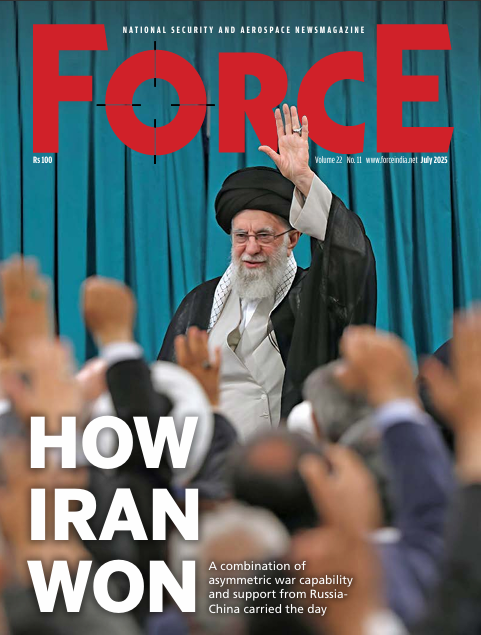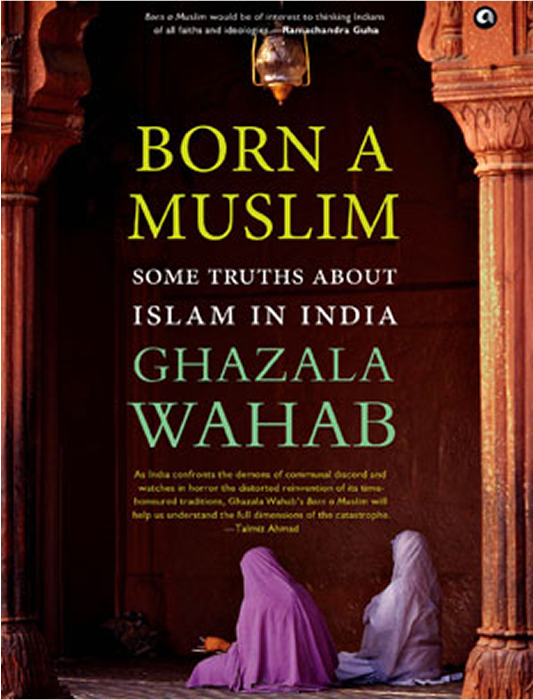A Matter of Izzat-O-Iqbal?
 Adm. Arun Prakash (retd)
Adm. Arun Prakash (retd)
The country-wide demonstrations by ex-Servicemen (ESM) on April 26 and 7 May 2008 to protest against the 6th Pay Commission report, were, by all accounts, conducted in a dignified and orderly manner; and that is exactly how it should have been. Now one hears some talk of a ‘hunger strike’ by ESM, but it is my fervent hope that this will not come to pass.
I have a nagging feeling that by these uncharacteristic and extraordinary gestures we, the ESM, have diminished ourselves in the eyes of our countrymen. One can just visualise people who have never had the privilege of wearing uniform or of serving the nation’s tricolour, smugly saying to themselves: “We always knew that their attitude of soldierly discipline and fortitude was only a facade. Deep down they are just like any of us.”
I am aware that these remark are likely to upset many of our Veterans who, despite advancing years, are going to great lengths to make a dramatic gesture on behalf of their comrades-in-arms. To them, let me just say that my criticism is directed, not so much at their actions, as at the insensitive and callous system which has driven them, in extremis, to such an unfortunate step.
1
An Ungrateful Nation?
In civilised nations the world over, the soldier, sailor and airman — and more so the Veteran — is an object of spontaneous respect, affection, admiration and the highest public esteem. These sentiments are made manifest by the people and the government of a grateful nation, in countless ways, in thought word and deed. There are monuments celebrating victories, statues of military heroes, war memorials for those who fell on the field of battle, avenues and squares named after soldiers and concessions for Servicemen in every sphere. Above all, Servicemen receive warm respect, affection and consideration from the general public as well as the media. None of this exists in India today.
I have no doubt whatsoever that in cities like London, Paris, Washington or Moscow the dismal spectacle of Veterans reduced to ‘demonstrating’ in public to ask for their dues, would have wrought agony in their countrymen. The citizens of New Delhi, God bless them, chose to ignore this ‘cry from the heart’ of old warriors. The media — otherwise so intrusive and inquisitive, and so proud of their ‘independence’ — almost completely blacked out this significant gesture by the Veterans. The one TV channel which planned to air a related programme chickened out at the last minute. We can only speculate about the reasons for the media’s sudden coyness.
From Major Som Nath Sharma who died fighting the Pakistani tribals in Badgam in 1947, to Captain Vikram Batra who laid down his life in the icy wastes of Kargil in 1999 there is a long Roll of Honour which lists the heroes and battle-casualties of the Indian Armed Forces. Just reading about their exploits of valour and self-sacrifice is enough to give one goose pimples. It is the inspiration provided by such brave men which motivates our Armed Forces to great heights of dedication and commitment to the motherland. But does anyone else in the country remember their sacrifice? Or care?
Not even a decade has passed since Tiger Hill and Tololing were won back by our soldiers in the face of intense enemy opposition at a horrific cost in lives. But our citizens do not have the time to even light a candle in memory of those who fell in Kargil, or a hundred other battles, because their adulation seems to be reserved exclusively for cricketers, cine stars and politicians. One often wonders if patriotic young soldiers should be shedding blood for the safety and well being of a society as ungrateful as ours?
Izzat-O-Iqbal?*
Let us not be fooled by the razzmatazz that economists are feeding us about India’s nine per cent GDP growth, or get carried away by the fabulous salaries offered by MNCs to young IIT and IIM graduates. As Indians, let us instead firmly bear in mind that 400-500 million of our brothers and sisters still survive on less than 40 rupees a day. I personally think that within the means available to the nation, the Armed Forces, and most of the ESM are paid enough. I say this without prejudice to the perfectly justified protest of the Armed Forces against the insidious manner in which the IAS has been steadily propelling itself upward to their detriment.
Really, it is not the money that bothers us. What the Serviceman and the Veteran find inexplicable and galling is something altogether different. They wonder why there has been a steady and continuing erosion in the soldier’s position and status in society while the responsibilities, hardships and hazards of soldiering have grown over the years.
Apart from their crucial role in defending the nation against every threat and calamity, the Armed Forces are making a vital contribution to the country’s social fabric. It is they who have promoted the ideals of integrity, discipline, professionalism and excellence, sadly lacking in every other walk of life. In the midst of prevailing chaos, the Armed Forces have remained an embodiment of order and discipline, and have faithfully upheld India’s secular and democratic traditions. There just isn’t any group, organization or set of individuals which has sustained the integrity, security and stability of the Indian state, with the steadfastness and loyalty demonstrated by the Indian Armed Forces.
Is it then surprising if the Soldier agonizes over the fact that in spite of his huge contribution to the nation, his Izzat has been deliberately denuded by vested interests, and Iqbal denied to him by his countrymen?
I do not claim to have answers to the Soldier’s dilemma, but I think that the issues involved have assumed such importance that they need to be examined in some depth. Let me place before the reader, four factors which I think have contributed to the steady and ongoing erosion of the soldier’s image, and the degradation of his status in Indian society, with consequential effects.
Political Antipathy
Mahatma Gandhi’s firm adherence to the noble principle of non-violence throughout India’s independence struggle has no parallel in history. He was a great man with profound values, but misinterpretation of his unique vision led to the emergence of two surreal perceptions amongst India’s political leadership.
For one they were convinced that since a non-violent India would have no enemies, the armed forces would become redundan
Subscribe To Force
Fuel Fearless Journalism with Your Yearly Subscription
SUBSCRIBE NOW
We don’t tell you how to do your job…
But we put the environment in which you do your job in perspective, so that when you step out you do so with the complete picture.








